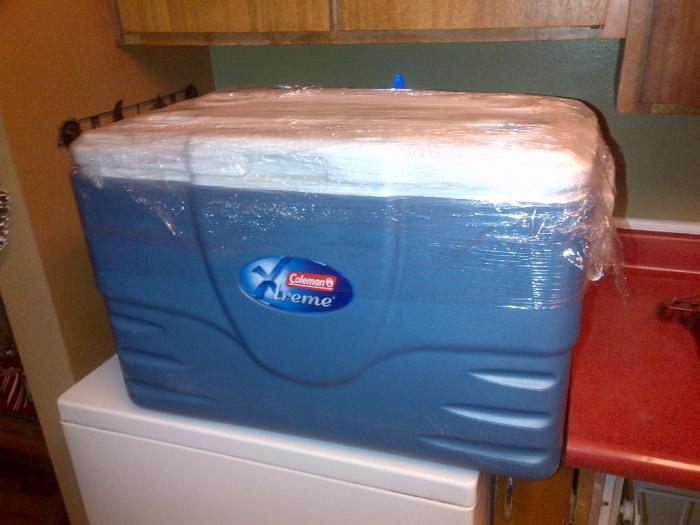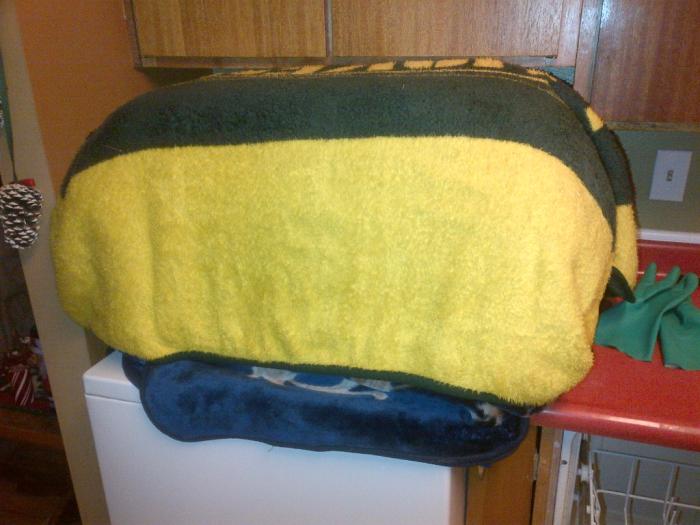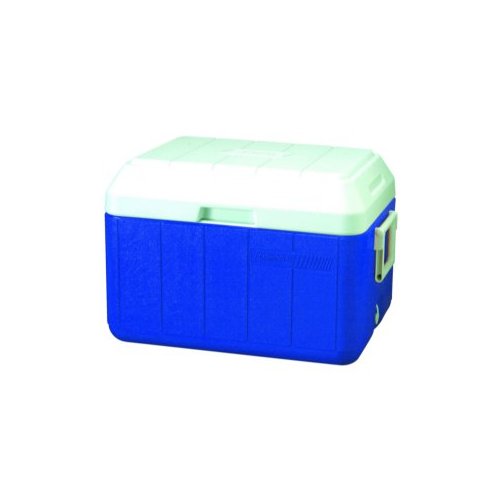Did my first overnight mash last weekend and loved it. Friday night at 9:30 p.m., I mashed in 13 lbs of Pale Malt at 149 degrees in my 10 gallon Igloo Mash Tun. Since I only had to heat the Strike Water, not the Sparge Water, it took half as long to reach the desired temperature. Stirred vigorously with my cordless drill/paint stirrer, shut the lid and put the Tun in the garage. 7:00 a.m. the next morning, the temperature had dropped to 139 degrees. Not bad. started to drain the Tun while I heated another 5 gallons of water for the batch sparge. While I sparged, I started heating the first runnings and added the second and third runnings along the way. Efficiency 83%, not bad. The only things I would do differently are: 1. start with the strike water 2-3 degrees higher. 2. saran wrap or tape the lid on the Tun (alternatively, I think I might look into buying some insulation to cut in a circle and slide it directly on top of the grain in the Tun). I also thought about warming the Tun up with some hot water before mashing, but that means I would have to heat pre-strike water to heat up the Tun. Seems to make more sense to heat the Stike Water a few degrees hotter to warm up the Tun before Mashing. Anyway, great idea and very convenient. Thanks to everyone who shared their experiences with this.





